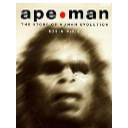Wild Thing: The Smithsonian National Zoo
 Wild Thing: The Smithsonian National Zoo showcases the role of the National Zoo in preserving endangered species on the edge of extinction. The stars of this show - Giant Pandas, Cheetahs, Orangutans, and other animals on display at the Zoo - are "ambassadors" for their dwindling species in the wild.
Wild Thing: The Smithsonian National Zoo showcases the role of the National Zoo in preserving endangered species on the edge of extinction. The stars of this show - Giant Pandas, Cheetahs, Orangutans, and other animals on display at the Zoo - are "ambassadors" for their dwindling species in the wild.
As part of a worldwide conservation effort, scientists at the National Zoo breed endangered species for the purpose of re-introducing them to nature. The National Zoo is truly a park full of wild animals, but it is also a reminder that humans don’t rule the earth; we share it.
Many of the animals on display are critically endangered in the wild. Some are even extinct in nature and only exist in captivity. Some of the Zoo’s most important challenges involve engaging visitors and reminding them that we are all connected to what goes on out in the wild.




I would add that is a more humane way of dealing with the population. All those who actually want to reduce it by forced sterilization, war, disease, vaccines, genetically modified food, weather modification/chemtrails, should volunteer to off themselves first to show us you are serious instead of arrogant punks.
Also habitat is being destroyed worldwide including pristine areas of the usa and elsewhere via weather modification/chemtrails under the guise of lowering the solar impact supposedly to reduce global warming, which is actually CAUSING global warming; along with their upper atmosphere heaters called HAARP which have grown in quantity by a lot.
Please tell your congressman to insist Japan quit dumping radioactive wastewater into the ocean and spewing radioactivity into the air stream. Collect and process that crap. It can be done, it just costs money some of it they would recoup in power production if used the water splitting method.
One might be able to extrapolate what happened here in the usa and other "western" countries to other locales. Along with and sometimes before habitat destruction came consumption. Bison for the hides. Deer for food. Fish for food. Now there are some wunderkinds that claim or used to, that every pound of domesticated livestock takes 7 lbs of grain. And? The rest of the story please! I'll take that pound of livestock fed its natural food source or closer to it, being pasture and such. Grain not only ruins the meat of those livestock, it would ruin you if you ate it too often; or at least me and those of similar heritage. Once I finally removed grain from my diet, no gut complaints and lost weight.
Although I disagree with the cutting down of jungle and forest for pasture, it would seem that is for export cattle. Keep the Amazon foliage and wildlife and let other countries grow their own meat or find some protein alternative.
Humans and wildlife can live in harmony. The biggest problem is the wrong headed nature lovers, city planners, and scientists who agree with them that believe crowding people into dense population areas is the way to make more room for wildlife. Untrue. All you create is an ever expanding wildlife and habitat destruction zone that cut off wildlife travel paths and encouraging the two legged specie to breed like rats, exacerbating the problem. If there were a 1000 feet between each house there would be plenty of pathways for wildlife to broaden their gene pool. And like where I used to live the White Tailed Deer would nibble on your yard grass and shrubs in the middle of the night. If you had a barn it would become a bird sanctuary without any effort. Build it and they will come, especially an old style two level with high perch areas and lots of nooks and crannies.
Suppose worldwide there was no welfare but space to grow your own food? More babies meant more work in growing more food and only so much food from so much land... No. Politicians prefer to buy votes by handing out the means of destruction of everything, especially the dignity of earning one's living and making them dependent. Socialism = rot.
If you go out into the hills of the Pacific NW in areas not owned by timber companies or State or National Parks, there are houses scattered in many areas. They aren't so close together. Those hills are full of wildlife. Sometime the huge Roosevelt Elk come down and ravage a poor farmers pasture. Such is life outside of town. Here deer walk around town at dusk but only half way from the trees to the main street. Older various size houses with bigger yards for them to roam through.
Excellent documentary. leaves you wanting to see more and learn more.
I was inspired by this. I needed to be reminded that some people still believe human beings can make a difference if they try. Even a single small success is proof that our concerted effort is viable.
Inspiring. I want to visit.
I understand what they are trying to accomplish with The Smithsonian Zoo. But the problem I have is conventional zoo's that use animals as tourist attractions and nothing more or it has very little to do with consevationand more to do with ticket sales.
Like for example, in Edinbugh zoo with all the hype about the 2 panda's being brought over from Japan. WTF is two pandas doing in Scotland!? They're not being reintroduced here cause they never existed here! This isn't where they belong, can they eat the vegitation around here, other than a fish supper and a bottle of Irn Bru,(sorry bad joke), can those plants they eat grow here in Scotland or do we have to import everything these Pandas might need? At least the climate here is kinda similar to Japan but that's it really.
Zoo's are nothing more than ANIMAL PRISONS
That's a simplistically ignorant statement.
Zoo's are part of the reason Animals are in danger in the first place.
Animals should be seen in there natural environment not in a zoo
1. No, that is not the reason.
2. You learned nothing from the documentary.
That would be ideal. That is also what the scientists at the Smithsonian are saying. The problem is epidemic loss of habitat. The natural environment where the creatures should be seen, is going and gone. ...did you actually watch the documentary?
Did you even watch this? lol
I find it ironic how the panda is the mascot animal for threatened and endangered animals -- if you research their biology, you will find they are an animal that would naturally go extinct quickly because of their highly specialized ecology and their maladapted physiology.
Perhaps an animal that should be doing excellently, but is not, would be a better fit in terms of the message and not just because it is cute (but they are so cute! damn pandas! :P )
Now, this is money well spent.
I love animals :D i wanto be a alligator so i can be stealthy and swim! >:3
__;;;;;;;;o< Gator.
@Kookookachoo...where are you?
It is a difficult issue to decide if zoos should exist or not. I agree with Waldo, conserving species is important and zoo research has been for a few species a way to reinstate animals in the wild who were close to extinction. As with everything, there are zoos that have plenty of space for each animals and there are zoos that don't. Many zoos remind me of homes for the elders, some are spacious, clean, well taken care of and offer great attention while others are more like prisons.
Zoos will be even though some shouldn't be.
az
I agree. I've seen some that are pretty good, a couple that aren't :( I've seen one in particular that comes to mind, that in no way seemed interested in the animals welfare, but only how much they could make out of them. It felt more like some macabre animal prison. I thought the one on this doco looked pretty good. Even with the good ones though, no matter how pretty the decorations, a cage is still a cage. I bet that cheetah would have liked some more room. I guess a lot of it comes down to are they doing anything to help the species in some way, or just using that as an excuse to have them.
If you ever get down to Melbourne, they have (did have last time I was there a few years ago) a pretty good butterfly house, full of beautiful (I think they're all native) butterflies. (it's a good spot in winter, they keep it warm ;) You can walk in there amongst them. My partner had quite a few land on her, (more then what landed on anyone else) it looked like they either liked her colorful top she was wearing, or her perfume. (or maybe, like me, her smile :) I bet you'd enjoy it there if you ever get the chance, they have some very pretty butterflies. One of my favorites, the Ulysses butterfly (google has some pic's of them, they're better irl though) at my Dad's old place we used to get them around the back yard often.
Hello!
I thought this doc seemed more like an advertisement for this particular zoo -- but they do great work so it is worth the watch.
Ahh, the zoo debate. It's because of habitat loss and fragmentation that we have them in the first place, so that pretty much sums it up, imo. But, one step forward for every two steps back is better than nothing. I prefer wildlife sanctuaries and conservation areas, although anyway you slice it, they are all just band-aid solutions for the real problem - us.
Also, there is usually quite a profit to be made from zoos (that isn't put towards research, which are usually grants- and funding-based). And there is profit in rarity -- you would not pay $50 to see squirrels and starlings, but you would for white tigers (which, incidentally enough, there is an ad to my right for the Toronto Zoos exhibit right now on this page). It is in "their" interests to keep populations viable but low enough to entice visitors.
However, education is the key and empathy from the public to make the changes we need to in order to really make a difference for all the flora and fauna - we are, after all, in the midsts of the sixth mass extinction of life on the planet.
Who will survive?
The last to perish will be the ants, the ones that act the most like us but their act is unfeigned and protected by smallness of shape, deepness in the ground, and volumeness of beings.
Or anything that small or smaller.
az
I really enjoyed this, mostly for all the different animals they showed. I mean i like the idea of conserving species and habitat and so forth but, in reality I don't see it happening- only being talked about endlessly. They did say they brought back the "Golden something or another" which is cool, but its such a drop in the bucket it really means nothing in the long run. If we continue down the same path we are on none of this will matter as we will go extinct along with most all species. Scientist estimate that we could lose up to sixty-five percent of all species or more if global average temp rises three degrees. Anyway that's a different documenatry I suppose and a different discussion. If you dig animals you should check this out.